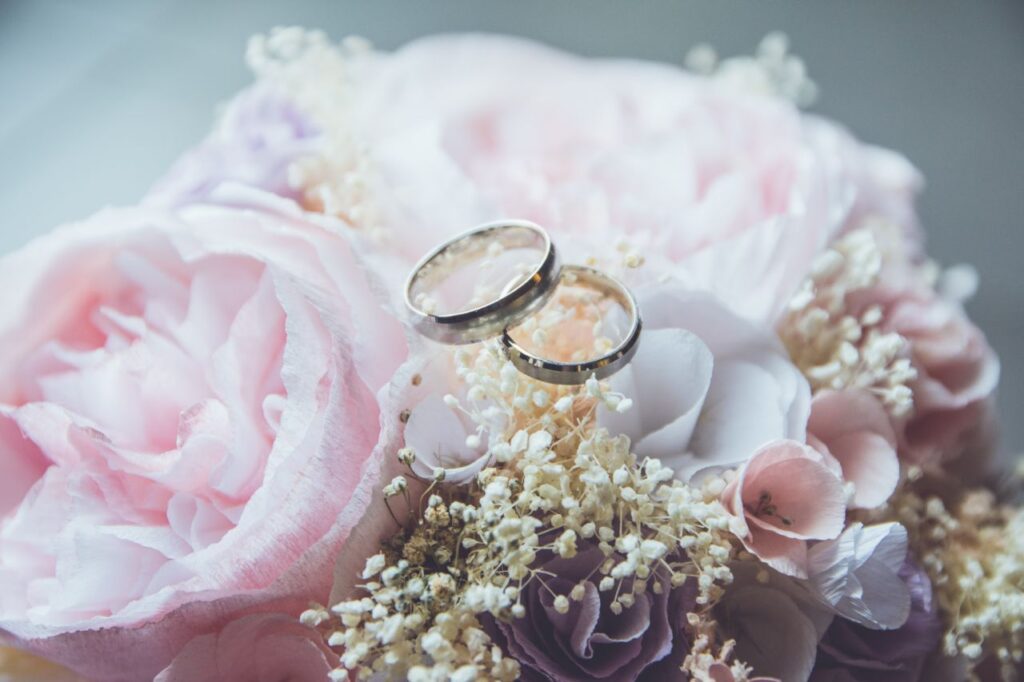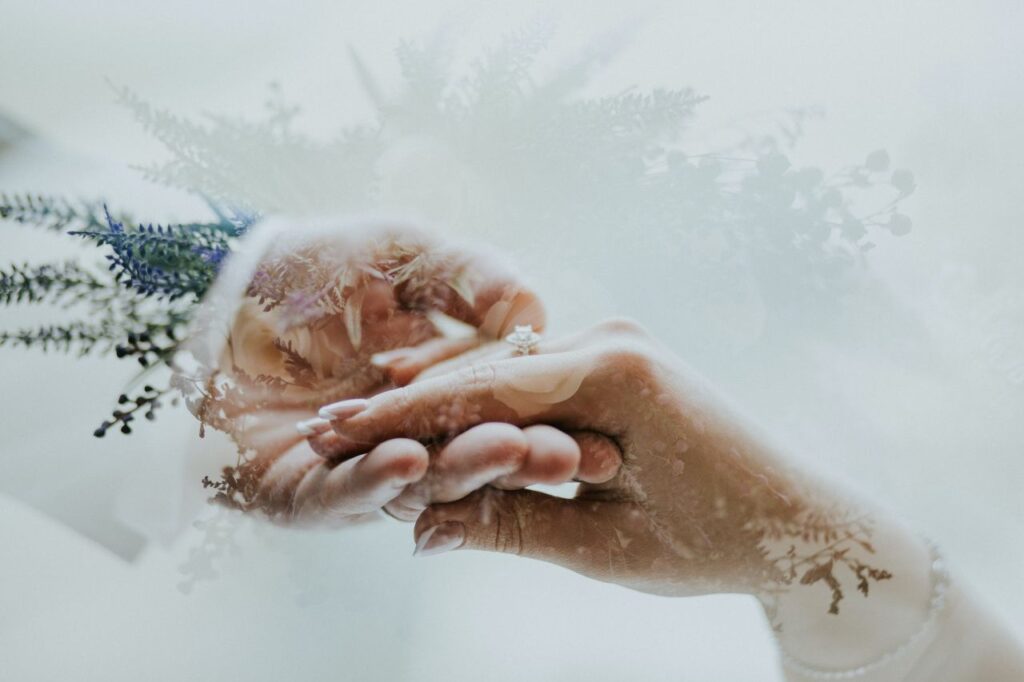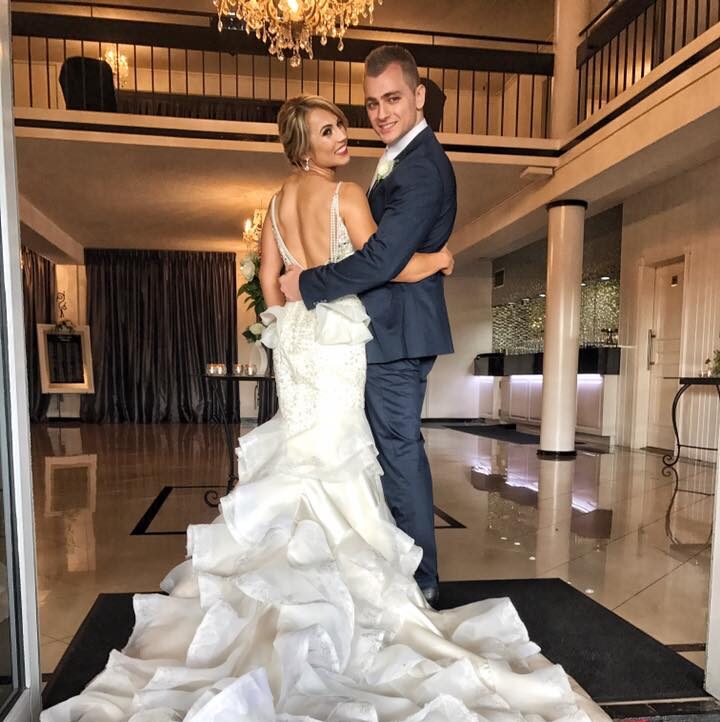Weddings are often seen as grand celebrations filled with flowers, music, and fancy outfits—but the true purpose of a wedding goes far beyond the décor and festivities. It’s a pivotal moment in life, marking the beginning of a shared journey between two people who vow to support, love, and grow together.
From the strengthened emotional bonds to the lifelong commitments made, a wedding serves as the foundation for a lasting partnership. Having seen countless weddings over the years, I can confidently say that the most meaningful ceremonies are those where the couple understands the deeper significance of what they’re promising.
The true purpose of a wedding involves much more than just a celebration. It’s a profound commitment that shapes the future and creates a foundation for love, unity, and growth. Whether you’re planning your own wedding or simply curious, discover why a wedding is a meaningful step in your shared journey.
Why Understanding the Purpose of a Wedding Is Crucial for Every Couple
When I got married at Vogue Ballroom, I quickly realised that the significance of the day went far beyond the dress and the cake. The real meaning of our wedding was in the promises we made to each other and the commitment to build a future together.
A wedding is about laying the foundation for a lifelong partnership, not just throwing a big celebration. It marks the beginning of a shared journey—a commitment to stand by each other through every high and low.
It’s easy to get caught up in the excitement of the day, but understanding the true purpose of a wedding helps ground you in what really matters: love, support, and building something lasting together.
Exploring the Emotional and Spiritual Bond in a Wedding
Weddings are emotional moments that go beyond the day-to-day routines. The vows exchanged are declarations of connection and commitment, not just about sharing a home or splitting chores.
I’ve seen couples like Sarah and Mark, who had been together for nearly 10 years before marrying, exchange vows filled with deep emotion. Their wedding wasn’t just about love—it was about the promises they had already kept for years.
A wedding is a declaration that you’re in this together, not just for the day but for the long haul. It’s about laying a foundation for growth, trust, and a shared future.
The Role of Love, Trust, and Emotional Connection in the Wedding Ceremony
Love and trust are what hold a marriage together, and that’s what the wedding ceremony is all about. I’ve witnessed countless couples exchange vows, but the most powerful moments always come when they lock eyes, fully connected, as they say “I do.” It’s in these moments that the real strength of their bond is shown.
Trust, commitment, and emotional connection are at the core of a wedding day. It’s more than just a ceremony—it’s a promise to grow together, face challenges together, and always support each other.

The Multiple Roles of a Wedding Ceremony in Cementing the Union
Weddings serve as more than just a celebration—they mark the official start of a lifelong commitment. A wedding ceremony is a chance to publicly affirm the love, trust, and commitment between two people. It’s a defining moment in a couple’s journey, one that brings together not only the couple but their families and communities.
When planning a wedding, it’s easy to get caught up in the details—the flowers, the music, the guest list—but it’s important to remember that the ceremony itself serves many crucial roles in cementing the union. From declaring your commitment to each other in front of loved ones to uniting families, a wedding ceremony is a powerful moment.
The Wedding Ceremony as a Formal Declaration of Love
One of the most significant purposes of a wedding ceremony is to make a public declaration of love and commitment. It’s where you and your partner stand in front of your friends and family, promising to be there for each other through thick and thin. In a world that often feels uncertain, those vows are a reaffirmation of the bond you’ve built.
- Public declaration: Saying your vows in front of your family and friends lets them know you’re committed to each other, providing both of you with a sense of accountability.
- The officiant’s role: The officiant’s words help solidify the legal and emotional aspects of the union. In Australia, it’s essential to have an authorized celebrant to make the marriage legally binding.
- Emotional connection: The vows exchanged reflect not just your commitment to love, but to grow together, sharing both the joy and challenges life brings.
Strengthening Bonds and Building Community
Another significant aspect of a wedding ceremony is its role in strengthening bonds between families, friends, and communities. Weddings bring people together in celebration, but they also create an opportunity for families to unite and forge new connections.
- Uniting families: Your wedding day is a beautiful way to bring your families together, often creating lasting relationships between people who might not have otherwise connected.
- Creating shared memories: From exchanging vows to cutting the cake, weddings are filled with moments that bring joy and foster a sense of togetherness.
- Building a support network: The people who gather to witness your marriage become part of your support system, helping to guide you through life’s challenges and celebrating your milestones.
Why Weddings Serve as a Powerful Symbol of Support
A wedding ceremony is not just a legal contract—it’s also a moment when you create a net of support from your loved ones. The presence of your family and friends serves as a reminder that you’re not alone on this journey. They’re there to witness your vows, celebrate your love, and offer support throughout your marriage.
- Symbol of support: The attendees at your wedding, whether they’re family or friends, stand as a visible reminder that you have a strong network behind you.
- Shared experiences: Traditions like tossing the bouquet or sharing a first dance create shared moments that everyone can connect to. These memories strengthen the bonds within your community.
Traditions and Rituals: A Celebration Rooted in Culture and Faith
Weddings are steeped in traditions and rituals, and in many ways, they represent a celebration of the past, the present, and the future. Whether it’s a cultural custom, a religious practice, or something personal that the couple has chosen, rituals play a significant role in defining the wedding experience.
In Australia, you’ll find a beautiful mix of cultural influences in wedding traditions. From the traditional Australian “Something Old, Something New” to more modern, personalised vows, the rituals in a wedding ceremony have the power to make the moment even more special.
For me, seeing a couple honouring family traditions while also making space for new ones always creates the most meaningful weddings.
Cultural and Religious Significance of Wedding Ceremonies
Weddings hold deep cultural and religious significance, with each ritual symbolising something important about the couple’s future together. These rituals create a strong sense of connection to the past and serve as a reminder of the commitments made to each other and to their community.
- Cultural rituals: From the exchange of rings to the lighting of a unity candle, different cultures have their own ways of symbolising the coming together of two people. In many Australian weddings, elements like the “tying of the knot” or even an Aboriginal sand ceremony are used to symbolise unity and partnership.
- Religious symbolism: For couples who choose to marry in a religious setting, the ceremony is often rich with spiritual significance. Whether it’s a Christian, Jewish, or Hindu wedding, these ceremonies honour not only the couple’s commitment to each other but also to their faith.
- Personalised rituals: Many couples today are stepping away from traditional rituals to create their own, reflecting their unique relationship. For example, I recently helped a couple incorporate a wine-sharing ceremony, symbolising their commitment to nurturing their love for years to come.
Adapting Wedding Traditions to Reflect Personal Values
Over the years, I’ve seen couples transform traditional rituals to better suit their values and personalities. These changes often bring a wedding to life in a way that resonates deeply with both partners and their families.
- Discarding outdated rituals: Some couples may choose to modify or leave behind rituals that no longer reflect who they are. For example, I worked with one couple who replaced the traditional father-daughter dance with a special dance between the bride and her mother.
- Creating new rituals: Another couple decided to skip the traditional wedding cake cutting and instead had a “memory lane” photo booth, where guests could add pictures to a board that told the couple’s story. This gave the ceremony a personal touch and allowed everyone to get involved.
More Than a Party: Understanding the True Meaning of Your Wedding Day
It’s easy to get swept up in the excitement of the big day—the decorations, the dress, the food, and of course, the party. But when it all boils down, a wedding is much more than a celebration. It’s the moment when two people make the ultimate promise to each other.
It’s a commitment that lasts far beyond the reception dance floor. I’ve had many couples tell me that the true beauty of their wedding wasn’t in the party but in the moment they exchanged their vows, surrounded by the people who matter most.
A wedding is not just a one-day event; it’s the start of something much bigger. It’s a public declaration of love, but also a private promise of support, growth, and partnership. While the celebration is certainly important, the real meaning lies in the vows and the lasting bond they represent.
The Role of Wedding Programs in Enhancing Ceremony Engagement
Wedding programs are often overlooked, but they can serve as an essential part of the ceremony. Not only do they help guests understand the order of events, but they also provide an opportunity for the couple to share their personal story, express their gratitude, and introduce special rituals.
- Order of events: A wedding program helps guests know what to expect, reducing any confusion and keeping the ceremony flowing smoothly.
- Introducing the theme: Programs can tie the ceremony’s aesthetic and theme together, setting the tone for the day. For example, a rustic wedding program with a personalised message can complement the overall vibe of a country-style venue.
- Acknowledging loved ones: Many couples use their programs to thank family and friends, recognising those who have been a big part of their journey. It’s a lovely gesture that makes the ceremony feel even more special.
- Introducing the wedding party: Programs can also introduce the bridal party, making it easier for guests to connect faces with names, especially in larger weddings where many guests may not know each other.
Reflecting on the Heartfelt Commitment of a Wedding Day
While the celebration is important, the true beauty of a wedding lies in the vows—the promises that are made in front of loved ones, sealed with a kiss. After the last dance and the last bite of cake, what remains is the commitment to each other. A wedding is a powerful reminder of what’s to come, not just the day itself. It’s a symbol of the beginning of a shared life, with its challenges and its triumphs, its laughter and its tears.
- Commitment beyond the ceremony: The vows exchanged during the ceremony are not just words; they are the foundation for the life you will build together.
The lasting impact: Years down the line, those vows will serve as a reminder of the promises you made, helping you through tough times and strengthening your bond.

The Spiritual Purpose of a Wedding: A Union Under God
For many couples, a wedding is not just a legal or emotional commitment; it’s also a spiritual union. The idea that marriage is a covenant, not just a contract, is deeply rooted in many religious traditions. In Australia, where weddings often incorporate both cultural and spiritual elements, the spiritual aspect of the ceremony is just as significant as any other part.
Whether you’re marrying in a church, a garden, or a ballroom, the spiritual purpose of a wedding transcends the physical setting. It’s about dedicating your union to a higher power and acknowledging that your love and commitment are not just between the two of you, but part of something greater.
Why Many See Marriage as a Spiritual Union
Marriage, from a spiritual perspective, is often viewed as a sacred bond. Many religious beliefs hold that marriage reflects God’s love and serves as a witness to His faithfulness. In Christian weddings, for example, couples are reminded that their union reflects the relationship between Christ and the Church. It’s a powerful reminder that love isn’t just a fleeting emotion—it’s a covenant of faith, trust, and commitment.
- Spiritual covenant: In Christian and other religious ceremonies, the vows are seen as a covenant, not just promises. Couples believe they’re not just making commitments to each other but also to their faith.
- Faith as a foundation: For couples with strong religious beliefs, marriage is seen as a call to holiness—a commitment to grow together in faith, as well as love.
- Divine blessing: The wedding ceremony itself, whether religious or secular, can serve as a moment to receive a divine blessing, acknowledging that their journey is part of a larger plan.
The Purpose of Marriage in Glorifying God
For couples who hold religious beliefs, marriage is seen as a way to glorify God. This doesn’t just happen on the wedding day—it’s part of the lifelong commitment that begins with the vows. By staying true to those vows, couples believe they are honouring the love God has shown them and using their relationship to reflect His goodness to the world.
- Reflecting Christ’s love: In Christian ceremonies, for example, marriage is seen as a reflection of the sacrificial love that Christ has for His Church. It’s about loving and supporting each other unconditionally.
- Marriage as a ministry: Some couples view their marriage as a ministry, serving others and reflecting the love of God in their actions, both towards each other and the world around them.
The True Meaning Behind Your Wedding Ceremony
A wedding day is much more than just an event—it’s the beginning of a lifelong journey built on love, commitment, and shared growth. It marks a moment in time when two people publicly declare their intention to build a future together, surrounded by their community, family, and friends.
Whether you’re focused on the cultural traditions, the spiritual significance, or the emotional bond, understanding the true purpose of your wedding ceremony makes the day even more meaningful. It’s a reminder that this isn’t just a celebration—it’s the start of something far deeper and more profound.


